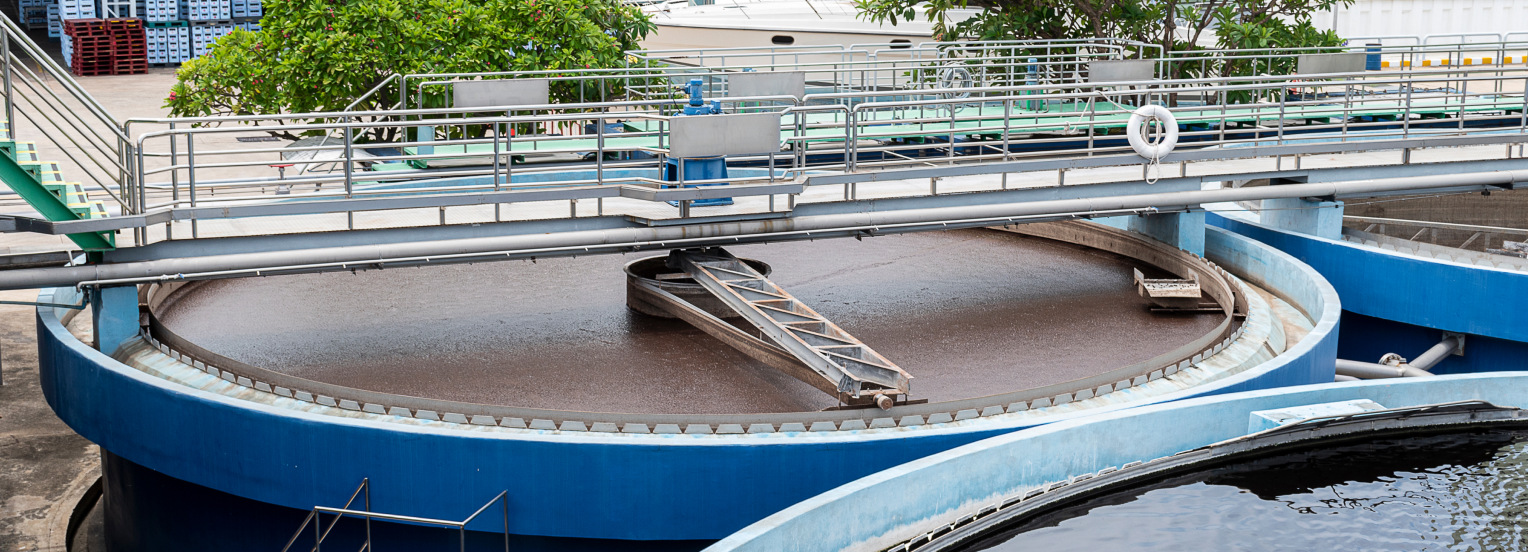
Wastewater treatment facilities assume a pivotal role in safeguarding the environment through the purification and elimination of pollutants from wastewater before discharge or reuse. Nonetheless, these treatment plants also encounter environmental challenges, necessitating attention and resolution. Common environmental concerns observed at wastewater treatment plants incorporates:
Nutrient Contamination: Wastewater often contains elevated levels of nutrients like nitrogen and phosphorus, inducing eutrophication in receiving water bodies. This process triggers excessive algal growth, oxygen depletion, and disturbances in aquatic ecosystems. Historically, treatment plants prioritized COD removal, leaving nutrient removal unaddressed.
Disinfection Byproducts: Some wastewater treatment plants employ disinfection techniques, such as chlorination/ozonisation, to neutralize harmful microorganisms before discharge. However, the interaction of disinfectants with organic matter in wastewater generates disinfection byproducts, posing risks to aquatic life and human health.
Energy Intensity: Wastewater treatment plants, especially large-scale facilities, demand significant energy inputs, leading to greenhouse gas emissions and an enlarged carbon footprint.
Odorous Emissions: During wastewater treatment, malodorous compounds can be released, causing discomfort to neighbouring communities and workers. Effective odour control measures are key to mitigating such emissions.
Sludge Management: The treatment process generates sludge as a byproduct, necessitating proper handling. Inadequate management can result in the release of harmful substances or unpleasant odours into the environment.
Microplastics: Wastewater treatment may inadequately remove microplastics from the effluent, potentially releasing these minute plastic particles into water bodies, endangering aquatic life and infiltrating the food chain.
Pharmaceuticals and Personal Care Products (PPCPs): Wastewater may contain trace quantities of pharmaceuticals and personal care products, which can be challenging to eliminate through conventional treatment methods and may eventually permeate the environment.
Noise and Visual Impact: Sizeable wastewater treatment plants can generate noise and visual disturbances in their vicinity, affecting nearby communities and ecosystems.
To confront these environmental challenges, wastewater treatment plants can adopt various measures, like:
By addressing these environmental concerns, wastewater treatment plants can optimize their operations, reduce environmental impacts, and safeguard the well-being of downstream ecosystems and communities.
Municipalities play a crucial role in environmental protection through a variety of activities and initiatives.
The food and beverage industry is a vast and diverse sector that involves the processing, manufacturing, packaging, and distribution of food and beverage products for human consumption.
The paper and pulp industry is a vital sector that plays a significant role in producing paper, paperboard, and other cellulose-based products.
The pharmaceutical industry is a vital sector that plays a critical role in healthcare by discovering, developing, manufacturing, and distributing medications and medical products.
The petrochemical industry is a crucial sector that plays a significant role in the global economy by producing a wide range of chemicals and materials derived from petroleum and natural gas.
Fish processing industries are businesses involved in the transformation of raw fish and seafood into various processed products for human consumption and other uses.
The mining industry is a sector that involves the extraction of valuable minerals, ores, and other geological materials from the Earth’s crust.




